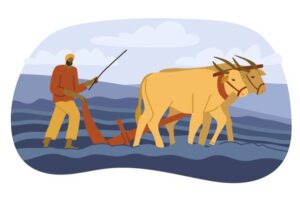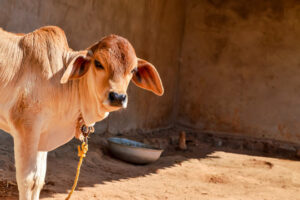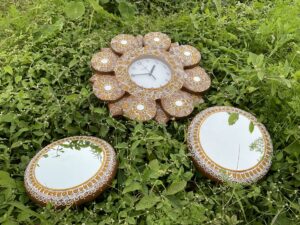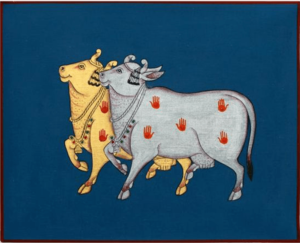As thoughtful and heartwarming as gift-giving can be, it’s crucial to be mindful of the environmental impact of our choices. In this blog post, we’ll explore three types of gifts that can have a significant negative impact on the environment. From production to disposal, these gifts can contribute to pollution, deforestation, and other environmental issues. By avoiding these gift types and making more sustainable choices, we can celebrate special occasions with a clear conscience and protect the planet for future generations. So, before you start your next gift search, read on to learn about the three types of gifts you should avoid giving.
Before unfolding the names of the products that must be strictly avoid as a gift to your friends, family and loved ones. Let us understand how is the environment is getting harmed by the practices we follow blindly, here’s a small statistics –
Checkout what numbers are showing -
As per the report generated by UNEP – United Nations Environment Programme, 300 million tons of plastic waste is generated every year globally and only 9% of it is recycled. Out of which about 11 million tons of plastic enters the world’s oceans. Scary!
It is also said that, if this continues than soon until year 2050, the plastic stock in the ocean will be equivalent to the fishes present in the oceans worldwide.
We are well aware that the plastic decompose slowly and only few plastic polymers can be recycled/reused, have you ever thought about what our upcoming generations will observe in the environment?
Not only this, but plastic is harmful for the humans and causes serious health related issues.

Let’s move on to the next environmental issues getting created because of the negligence towards another important element – Forests.
Everyone likes to sit under the tree, lie under the shadow of tree in a hot summer days, the beautiful greenery it creates, the fruits we get and not to forget, those cherry blossoms!
Reports shared by the world organizations, It is estimated that each year about 15.3 billion trees are lost to deforestation, making the loss of 8 million hectares of forest lands.
Before the existence of humans, it’s estimated that there were around 6 trillion trees, covering around 6 billion hectares of land. This means that we’ve lost nearly half of all the trees that ever existed….

How can gifting environment consciously will help ?
When choosing gifts, it’s important to opt for eco-friendly and sustainable options. Choose gifts made from renewable resources, recycled materials, or with minimal carbon footprints like bamboo, Cow dung (Gobar), clay. etc. Another option is to support local artisans or small businesses or give experiential gifts that create memories rather than material waste. By choosing environmentally friendly gifts, we show our loved ones that we care about them and the planet while making a positive impact on the environment.
We have focused on what gifting options must be considered when choosing a gift for your loved ones, now sharing what products are a BIG NO to gift for environmental well-being, let’s get started!
A BIG NO listed items are -

Leather Products
The leather industry is highly criticized for causing major environmental impacts which not only pollute water but lead to deforestation and slow decomposition process because of the chemical treatments conducted during the manufacturing of leather products. Not only this, but the chemicals used for tanning the animal skins, is a chemical-intensive process that involves the use of various chemicals, such as chromium, formaldehyde, and other heavy metals, which can be harmful to human health and the environment. The improper disposal of these chemicals can lead to soil and water pollution and pose a risk to workers in the leather industry.
Do you want to gift these products which is obtained by animal slaughtering and generate harmful waste which is not good for our mother earth and us?
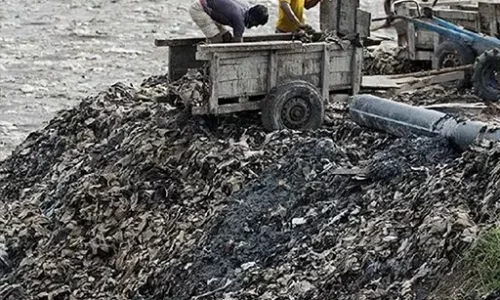

Plastic Items
The damage plastic has caused and still causing, probably will continue to cause if not stopped is shocking. We have read above the harm it is causing to environment. Plastic is not only very harmful but dangerous with human exposure. Plastic contains chemicals when leach into food particularly when heated will cause certain hormonal, respiratory, skin irritations, and increase risk of various types of cancers.
We are sure, you would never gift a box of various diseases in the form of plastic to friends and family on their special occasions, right?

Wooden Products
Wooden products are used as a great alternative to plastic products, but I am sure you still remember the deforestation earth has faced and the affects humans and eco-system will face when no or less trees where left seen the increase in the population.
Trees are not only important for its shadow, the calmness it provides or the food it creates, but also balances the overall eco-system, climate regulation, biodiversity, watershed protection, soil erosion .etc. Overall, forests are essential for maintaining the health and well-being of the planet and all living beings. Protecting and preserving forests is crucial for ensuring a sustainable future for generations to come.
Conclusion
When considering gift items, it is important to account for durability, aesthetic appeal, and the environmental impact of the item. When choosing gift items, it is important to consider more sustainable options, such as natural fabrics, eco-friendly materials, and items that are built to last. Ultimately, finding the right gift is about making a thoughtful and considerate choice that reflects your values and your relationship with the person you are gifting. We hope you've found this blog helpful and informative, you can never outlook these products that will surely make a unique and eco-lovely products




